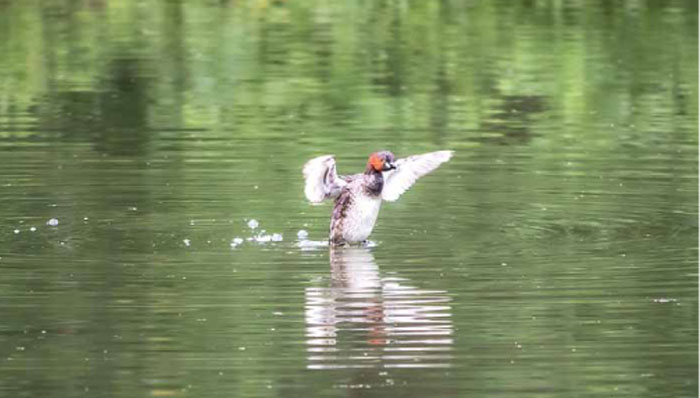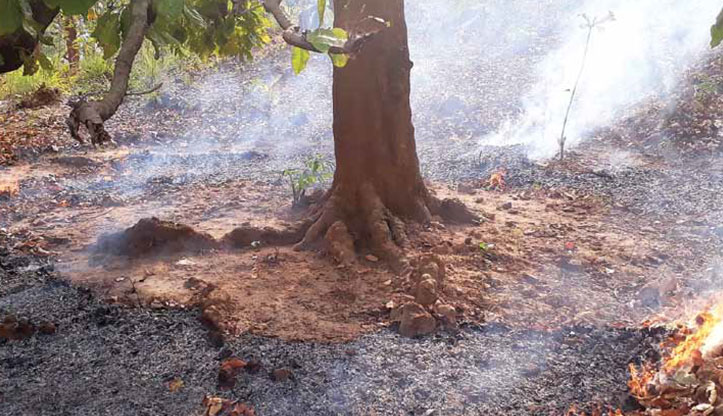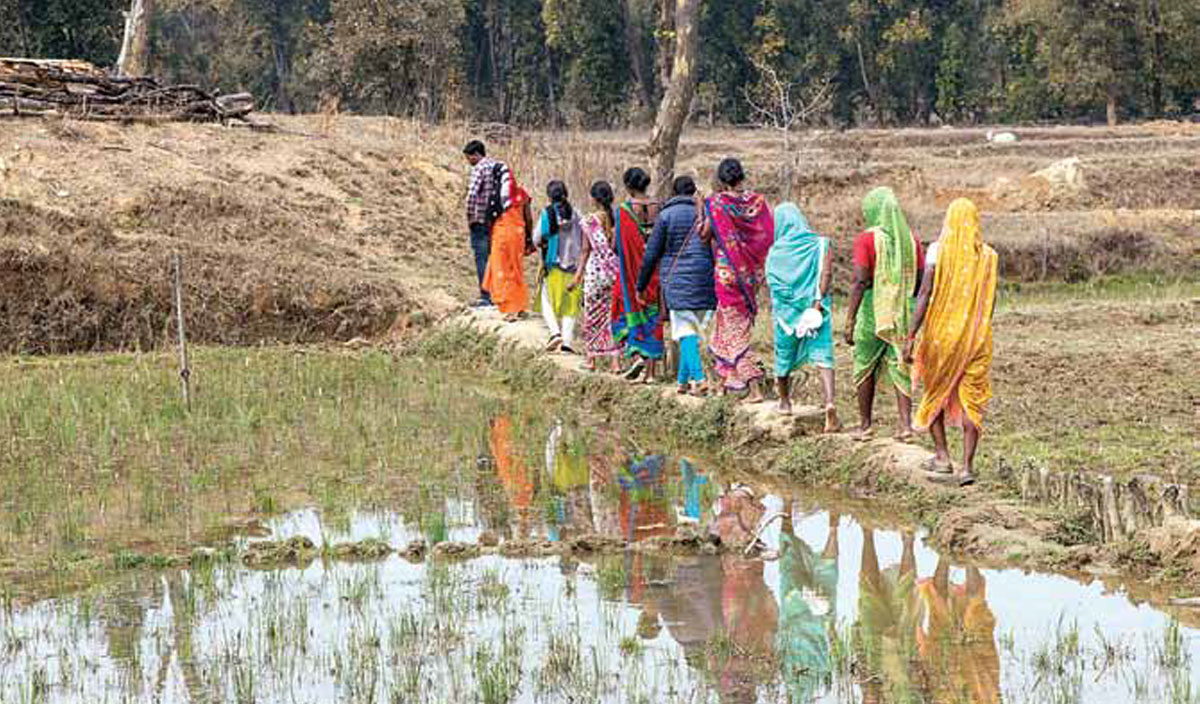
Empowering Indigenous Communities via Nature-Based Solutions around Kanha Tiger Reserve
By Vibhor Choudhary
India’s forests have long been home to diverse wildlife and indigenous communities whose lives intertwine with the natural environment. Among them, the Baiga and Gond tribes near the Kanha Tiger Reserve in Madhya Pradesh exemplify forest-dwelling populations resettled for tiger conservation. Despite noble intentions, these communities encounter several hardships, from limited access to sustainable income and education to struggles for their rights. To address these challenges, A local aspiring NGO, Earth Focus Foundation (EFF), has taken a proactive role in empowering these indigenous communities through naturebased solutions and sustainable livelihoods. This article sheds light on resilience, EFF’s initiatives, and the potential for a harmonious coexistence between conservation and human well-being.
Key Challenges Faced by Indigenous Communities of Kanha
Insufficient Employment Opportunities: With low literacy rates and limited formal education, finding stable job opportunities is a major challenge for the Baiga and Gond tribes. Consequently, they often resort to local daily wage work in on other people farms/lands and engage in distress migration, making them vulnerable to exploitation.
Over-Reliance on the forest: The tribal communities heavily rely on the core and buffer areas of Kanha Tiger Reserve for their livelihoods, collecting Minor Forest Produce (MFP) such as bamboo, fuelwood, medicinal plants, fruits, mushrooms, etc. However, this over-reliance leads to conflicts with the Forest Department and wildlife and raises concerns about the exploitation of protected forest areas.
Monocropping in Agricultural Fields: Rain Dependent, single-crop cultivation, particularly of recently adopted paddy, exposes farmers to risks and limits their income potential.
Monocropping practices contribute to soil degradation, increased disease and pest susceptibility, and adverse environmental impacts.
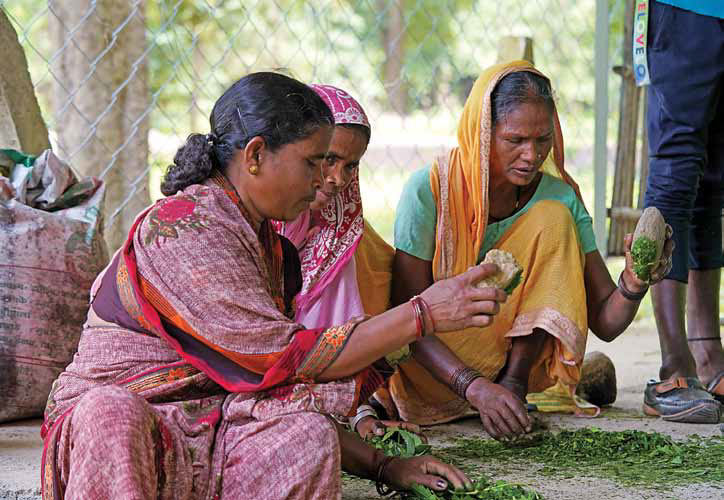
Under-utilization of Land due to Human-Wildlife Conflicts
Unprotected farmers’ fields are at risk of wild herbivores causing crop depredation, leaving significant portions of cultivated land underutilized.
Shift to Chemical-Induced Farming: The adoption of high-yield variety (HYV) rice cultivation has led to the abandonment of traditional crops, necessitating the use of chemical fertilizers & pesticides that harm river ecosystems and degrade soil quality.
Underutilization of Cultivated/Collected Raw Materials: Lack of fixed minimum selling prices and the loss of traditional processing practices result in the direct sale of raw produce at minimal rates, exacerbating the economic challenges faced by the communities.
Interventions by Earth Focus Foundation (EFF)
Mobilizing the Community for Sustainable Income Generation: EFF encourages the adoption of nature-based solutions, such as planned plantation, value addition of MFPs, natural farming, and linking communities to ongoing government schemes. These interventions aim to create sustainable and resilient income opportunities while minimizing conflicts with the environment.
Protection of Community Land: EFF has undertaken measures to protect around 200 acres of indigenous farmers’ barren lands by installing community-maintained chain link fencing, safeguarding their agricultural assets from encroachments and wildlife disturbances.
Plantation of Cash Saplings & Native Plants: To restore degraded land and develop resilient income streams, EFF implemented nature-based livelihood interventions. The foundation along with local administration planted grafted mangoes, bamboo, and native plants that yield MFPs and generate income, providing an alternative to unsustainable forest dependence.
Revival of Traditional Native Crops: In partnership with the local community, EFF promoted the cultivation of traditional crops that require minimal water and no chemical inputs, such as local millets, oilseeds, turmeric, garlic, and local vegetables. This not only enhances food security but also preserves traditional knowledge and helps revive barren land.
Community-Based Traditional Seed Bank: EFF is working towards establishing a community-centric traditional seed bank to ensure the sustainability and accessibility of seeds for cultivation, preserving traditional crop varieties and promoting biodiversity.
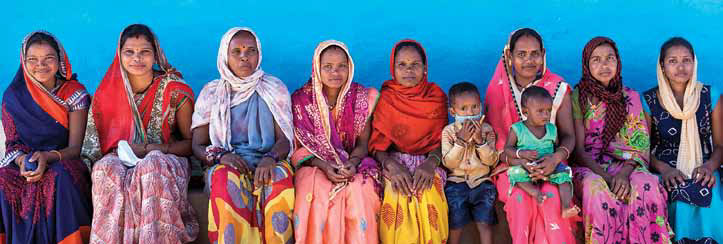

Value Addition of Raw Materials: To increase farmers’ income, EFF streamlined and centralized the process of value addition for raw materials. The establishment of community-centric millet processing mills promotes traditional food production and supply chains.
Collaboration with Government Departments and Schemes: EFF facilitates collaboration and convergence with various government departments and schemes to leverage existing public funds and institutional knowledge. This effort involves associating farmers with existing government schemes to enhance their livelihood opportunities.
Current Progress
Since its initiation in 2020, EFF’s livelihood program has made significant strides. It now covers 15 forest fringe villages in the Mukki area of Kanha Tiger Reserve, benefiting approximately 516 households. The foundation has successfully planted over 75,000 saplings and reintroduced nine varieties of traditional crops, boasting an impressive survival rate of 80% of the saplings on 220+ acres of barren land. Initiatives like Jawahar-Badi enabled 46 households to grow various vegetables, reducing their dependency on market purchases and ensuring a healthier diet.
Enrolling farmers in MNREGA and related government schemes has resulted in an average of 134% increase in income for beneficiary households. By promoting sustainable livelihoods, EFF has alsoreduced distressed seasonal migration by 90 per cent in its initial village and fostered in-house economic growth while preserving the rich biodiversity of Kanha Tiger Reserve.
Conclusion
Earth Focus Foundation’s interventions tend to empowered the Baiga and Gond communities near Kanha Tiger Reserve. By providing sustainable nature-based livelihood opportunities and tailored contextual education, EFF is paving the way for a harmonious coexistence of people and nature. Through a holistic approach and collaboration with government authorities, these efforts have reduced household migration and ensured the preservation of the region’s rich biodiversity. This article serves as an inspiring example of how nature-based solutions can uplift indigenous communities and promote sustainable development in ecologically sensitive areas.
Initiatives like these offer valuable insights from and for similar efforts worldwide, fostering a brighter, more sustainable future for indigenous populations and the environment they call home.
To know more about the work being done by the Foundation, please visit: https://www.earthfocus.in/ or, write in to
us at – effkanha@gmail.com



